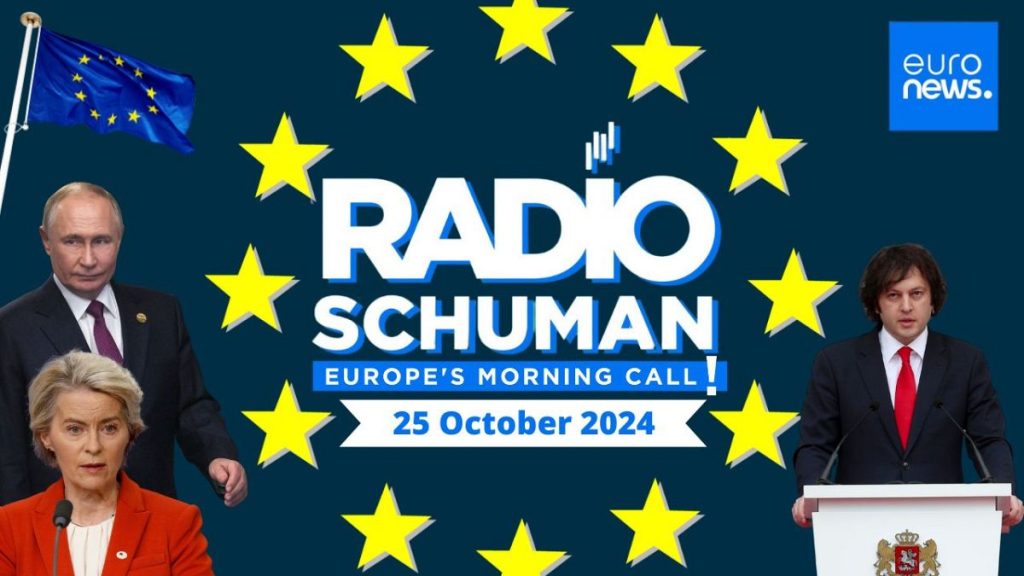Georgians are preparing to participate in parliamentary elections that will have a significant impact on the country’s future trajectory, with the choice between aligning with the EU or moving closer to Russia’s sphere of influence. Prime Minister Irakli Kobakhidze expressed confidence in Georgia’s path towards EU membership and dismissed any suggestion of Russian interference in the election. The country was granted EU candidacy last year but faced setbacks due to controversial laws enacted by the government, including a “foreign agents” law similar to Russia’s and restrictions on LGBTQ+ rights. President Salome Zourabichvili, a pro-European leader, refused to sign these bills, reflecting the deep polarization within the country and ongoing pro-EU protests in the capital. Additionally, other elections in Europe, specifically in Bulgaria and Lithuania, show socialists and center-right parties leading the polls.
The upcoming parliamentary elections in Georgia represent a critical juncture for the country, as voters decide whether to continue on a path towards EU integration or potentially shift towards closer ties with Russia. The Prime Minister’s statements highlighting Georgia’s EU aspirations and downplaying Russian influence suggest a clear divide among political forces within the country. The controversy surrounding recent laws passed by the government, particularly those curbing civil liberties and mirroring Russian legislation, has fueled public protests and heightened tensions. President Zourabichvili’s refusal to sign these laws underscores the internal divisions and complexities facing Georgia as it navigates its political future amidst competing external pressures from the EU and Russia.
The decision facing Georgian voters in the parliamentary elections goes beyond domestic policies, with implications for the country’s geopolitical alignment in a broader regional context. The EU’s freezing of Georgia’s accession process due to legislative measures undermining democratic principles underscores the high stakes involved in these elections. The government’s actions, including the controversial “foreign agents” law and restrictions on LGBTQ+ rights, have raised concerns among European leaders and prompted public outcry within Georgia. The country’s internal polarization and ongoing pro-EU protests reflect the challenges of balancing competing political interests and ideologies while navigating external pressures from both the EU and Russia.
In addition to Georgia, other elections in Europe are taking place, shaping the political landscape across the continent. Elections in Bulgaria and Lithuania show socialists and center-right parties leading in the polls, reflecting the diverse political trends and dynamics at play in different European countries. The broader context of these elections underscores the interconnectedness of political developments within the European Union and its neighboring regions. As countries across Europe navigate their own political transitions and electoral processes, the outcomes of these elections will have implications for regional dynamics and the overall direction of European integration.
Radio Schuman provides insights and analysis on the upcoming parliamentary elections in Georgia, as well as other political developments across Europe. Hosted and produced by Maïa de la Baume, with contributions from journalist Eleonora Vasques and audio editing by Zacharia Vigneron, the program offers a comprehensive overview of key issues shaping the European political landscape. By highlighting the implications of the Georgian elections and exploring trends in other European countries, Radio Schuman provides a nuanced understanding of the complex challenges facing the region and offers valuable insights into the future of European integration and political dynamics.
As Georgians head to the polls, the choice between aligning with the EU or moving closer to Russia’s orbit underscores the country’s complex geopolitical positioning and internal divisions. The outcome of the parliamentary elections will not only shape Georgia’s future trajectory but also have broader implications for regional dynamics and European integration. The contrasting viewpoints and actions of political leaders, including the Prime Minister, President, and civil society protestors, highlight the competing interests and ideologies at play within Georgian society. Radio Schuman’s coverage of the elections and other political developments in Europe offers a valuable perspective on the interconnected nature of European politics and the challenges facing the continent in navigating complex geopolitical realities.













